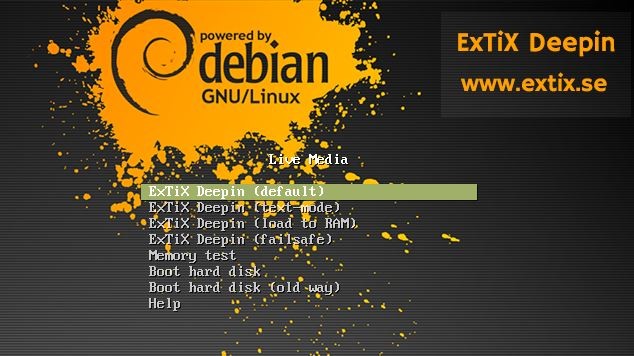
- DEBIAN HOW TO CHECK IF LIGHTDM IS INSTALLED INSTALL
- DEBIAN HOW TO CHECK IF LIGHTDM IS INSTALLED UPDATE
DEBIAN HOW TO CHECK IF LIGHTDM IS INSTALLED INSTALL
Make sure you are running the Proxmox VE Kernel, otherwise the installation will fail.Īpt-get remove linux-image-amd64 linux-image-3.2.0-4-amd64 linux-baseĪpt-get install proxmox-ve-2.6.32 ntp ssh lvm2 postfix ksm-control-daemon vzprocps open-iscsi bootlogdĪccept the suggestion to remove Exim and configure postfix according to your network. Reboot: Now restart the system using the Proxmox VE kernel.Make sure to select Proxmox VE Kernel on the boot loader (grub2) - Attention: Default is the 3.2 kernel.
DEBIAN HOW TO CHECK IF LIGHTDM IS INSTALLED UPDATE
Update your repository and system by running:Īpt-get update & apt-get dist-upgrade Install Proxmox VE Kernel apt-get install pve-firmware pve-kernel-2.6.32-26-pveĪpt-get install pve-headers-2.6.32-26-pve If it does not work for apt-get of some files, then replace with ftp:// especially in the first two urls above. NOTE: Due to a bug in debian/apt(?) it may be required to alter the above sources.list entry to say the following, if apt-get complains about not being able to find /binary-i386: "Unable to find expected entry 'pve/binary-i386/Packages'" (despite it being a 64bit debian install!) # PVE repository provided by, only for installation (this repo will stay on 3.1)

Nano /etc/apt/sources.list deb wheezy main contrib Install Proxmox VE Adapt your sources.listĪdapt your sources.list and add the Proxmox VE repository: # The following lines are desirable for IPv6 capable hosts Note: Make sure that no IPv6 address for your hostname is specified in /etc/hostsġ27.0.0.1 localhost.localdomain localhostġ92.168.6.177 proxmox-6-177 pvelocalhost Please make sure that your hostname is resolvable via /etc/hosts, i.e you need an entry in /etc/hosts which assigns an IPv4 address to that hostname. Go for a LVM based partitioning and a fixed IP and take care that you have enough free space for snapshots (needed for online LVM backup with vzdump, OpenVZ containers only) Install a standard Debian Wheezy (amd64), for details see Debian. We recommend to use ext3 filesystem for best OpenVZ performance and stability. LV VG Attr LSize Origin Snap% Move Log Copy% Convert For this HowTO the following Debian Wheezy ISO was used: debian-7.8.0-amd64-netinst.iso.

In some case it makes sense to install Proxmox VE on top of a running Debian Wheezy 64-bit, especially if you want a custom partition layout. The installation of a supported Proxmox VE server should be done via Bare-metal_ISO_Installer.

2 Install a standard Debian Wheezy (amd64).


 0 kommentar(er)
0 kommentar(er)
